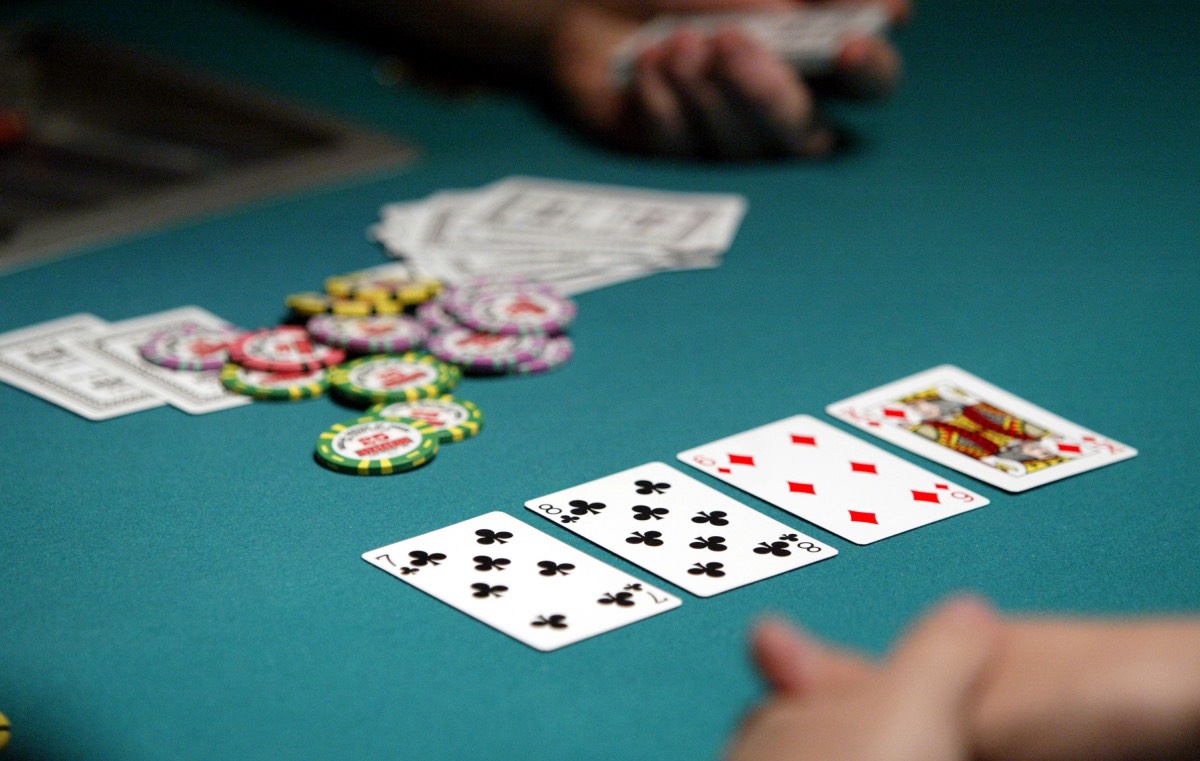[dropcap]O[/dropcap]f the many games and sports across the world that require a certain level of skill to contend, the skill set used in poker continues to be extrapolated into other realms of modern life. The card game, regardless of it being stud poker, hold’em, or Omaha, is very much about convincing your opponent to think and play in a way that will benefit you, enabling you to extract more chips from them when you have calculated that you’re going to come out of the round as the winner. With so many psychological strategies deployed and lessons learned at the poker table, it should come as no surprise that skills in poker can be translated into the world of business.
Bonus Tip: You can learn to play poker online at Situs Poker Online
How poker and business strategies are comparable
Some poker players get an unfavourable reputation because they’ve become rich and successful simply by playing games of Omaha or hold’em instead of grinding in a traditional profession or building a business. Players like Dan Bilzerian, who flaunts his wealth and success from playing poker on social media is a notorious example. But, to get to the top of the game, players not only need a deep knowledge of the game, but they also need to display the psychological skills to convince others into their way of thinking. As they can only play the cards that they’re dealt, all other potential factors that come with sitting at a table of other poker players have to be utilised to gain an edge. A great number of these strategies can be compared to those deployed in the world of business.
Many people cite a heralded ‘poker face’ as being a key skill both in the game and when applied to business strategies, but while keeping a straight face can come in handy, it’s more about the ability to leverage people into thinking what you want them to think through your actions and style. At the Texas hold’em table, you will have accounted all of your actions and behaviours earlier in the game to then, when you have a good hand and want to lure in others, deploy behaviours that make it seem like you’ve got a bad hand, thus coaxing your opponents to put more into the pot. As business is a largely collaborative scene, these poker skills come out as a salesman, trying to convince your potential client into your way of thinking by acting a certain way and using certain strategies.

Along with the interactions to be had with other people, there are also the mathematical and money management sides that can be seen as similar between poker and business. In both, risk management is a core element of success, with the need to calculate how much risk there is before investing, potentially making or breaking a business or a game of poker. Coinciding with risk management, it’s also important for both walks to be considerate of their over bankroll and how much they should invest at set times. For example, in poker, even if a top player has a strong hand, they will calculate the risk that their opponent has one of the other combinations that could defeat them, and adjust their bet accordingly. In business, when investing, even if it seems like a sure-fire success, a professional will rarely invest all of their available funds as there is a chance that it won’t pay off.
So, as you can see, there are many core elements of poker gameplay which not only compare to elements of business but can be translated from the table to the office. But, as is the case with many games, experience with poker is vital.
Why experience in poker matters
Understanding the depths of the game of poker and the laws of probability is one thing, but being able to play poker at a live table or even in an online room is a very different matter. It takes time at the tables to learn how to read your opponents and, just as importantly, develop methods which help you to avoid being read. In a competitive environment, some players forget all of the theory and strategy that they’ve been well-schooled in simply because they’re not accustomed to the environment; so getting the experience of being in the hot seat, having money on the line, and taking on real-life opponents makes a huge difference.
In this video, another element of poker skill being used in the world of business is discussed. Here, losses for investors aren’t deemed to be bad decisions, merely an element of the game. In poker, players can turn losses to their advantage, such as by mimicking their losing actions when they have a good hand to convince others that they have a bad hand once again.
With more experience at the poker table, you’ll see more styles of play that you’ll learn to combat, as well as the many psychological strategies that others will try to deploy. Also, there’s nothing like playing at a live table to test your skills and strategies for real reactions in a competitive environment. Gaining this experience will make it easier for you to transfer the core elements from poker to business. Playing more poker and gaining experience will also bring you the very necessary losses that are needed for you to grow and cultivate your game.

How to improve your strategy by making errors
In business, making an error can be detrimental, but at the poker table, you’ll get many chances to redeem yourself in a single game. This makes getting experience at the poker table vital if you wish to improve your business strategy with the card game’s core elements. Whether it’s Texas hold’em, stud poker, or any other form of poker, provided that you don’t go all-in very early, you’ll develop your strategies throughout each game, experiencing ebbs and flows throughout. While recognising which methods resulted in wins, it’s even more important that you recognise the problems in your game which led to losses or even lucky wins. This is a fundamental element of poker psychology and crucial to becoming a better player with better skills that can be transferred to business. You need to identify if there were any mental issues – such as overconfidence, boredom, or anxiousness – that hindered your game and what situations caused these frailties to arise. Also, keep tabs on when you tend to make poor decisions in the game and if these poor decisions correlate to the size of your stack. Learning the error of your ways will allow you to adapt and improve your strategies, making you less likely to repeat such problems when it comes to deploying similar strategies in the business side of your life.
The need to continually develop your poker and business strategy
This video details four poker lessons which will help you to think clearly and live wisely. All are relevant to many aspects of life, but the second point about the need to develop and update your strategy regularly is perhaps the most applicable to the world of business.
In poker, players are always coming up with new ways to get an edge in the game, be it betting strategies or new psychological games. In business, new techniques, technologies, and innovations continue to drive industries forward, which everyone in the industry will need to adapt to. In both realms, you need to continually develop your strategies to stay on top and avoid becoming stagnant and otherwise irrelevant. Even in a single game of poker, you need to develop your play and deploy different styles to avoid being sussed by your foes and ultimately defeated.

Poker offers a very good method for you to improve many key elements of business which, in the end, could make or break deals. Getting experience at poker tables to hone your skill will only make you better while developing your poker psychology through learning from your mistakes is the best way to develop and improve.







